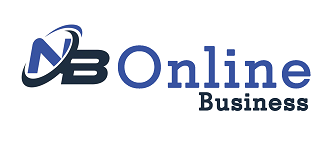A digital nomad is someone who leverages technology to work remotely from various locations, often travelling while maintaining their career. This lifestyle offers incredible freedom and opportunity, but it also comes with unique challenges that require a high degree of flexibility to overcome. Flexibility in this context means being able to create a productive workspace you find yourself. This might involve carrying portable equipment, such as noise-cancelling headphones or a laptop stand, to improve ergonomics in less-than-ideal working conditions. It also means being able to focus and deliver quality work regardless of your surroundings.
Dealing with time zone differences
When asking what does digital nomad mean in practice, one must consider the global nature of this lifestyle. Digital nomads often find themselves working across multiple time zones, which can be both a blessing and a challenge. Flexibility in working hours becomes crucial to maintain effective communication with clients or colleagues around the globe.
Successful digital nomads learn to adjust their schedules to accommodate early morning or late-night calls when necessary. They might work split shifts to be available during their clients’ business hours while still exploring their current location during daylight hours. This level of flexibility allows them to balance their work commitments with their desire to experience new places.
Embracing cultural differences
Flexibility for digital nomads extends beyond just work arrangements – it also involves adapting to different cultures and social norms. Each new destination brings its own set of customs, etiquette, and ways of doing business. Successful digital nomads approach these differences with an open mind and a willingness to learn and adapt. This cultural flexibility can enhance both personal growth and professional opportunities. It allows digital nomads to build meaningful connections with locals and other travellers, potentially leading to new business partnerships or collaborations.
Managing finances across borders
Financial flexibility is another crucial aspect of the digital nomad lifestyle. Working and travelling across different countries often means dealing with multiple currencies, varying costs of living, and complex tax situations. Digital nomads must be adept at budgeting, tracking expenses, and navigating international banking and payment systems. This financial flexibility might involve maintaining accounts in multiple currencies, using digital banking solutions designed for travellers, or being prepared to adjust spending habits based on the cost of living in each new location.
Balancing work and travel
One of the biggest challenges – and opportunities – digital nomads face is balancing work and travel. The freedom to explore new places can be exhilarating, but it must be balanced with the responsibility of meeting work deadlines and maintaining professional relationships. Flexibility in this context means able to set boundaries and create structure within a constantly changing environment.
Coping with uncertainty
The digital nomad lifestyle inherently involves a degree of uncertainty. Plans can change quickly due to visa issues, travel restrictions, or simply the desire to stay longer in a particularly appealing location. Flexibility in the face of this uncertainty is crucial for maintaining both mental well-being and professional success. This might mean having contingency plans, being prepared to change locations if necessary quickly, or being able to adapt work projects to unexpected changes in schedule or environment.
Continuous learning and skill development
Despite an ever-changing job market, digital nomads must be flexible in their approach to learning and skill development. Acquiring new skills quickly and adapting existing ones to new contexts is invaluable in this lifestyle. This learning flexibility might involve taking online courses, attending workshops in different countries, or seeking out mentorship opportunities with other digital nomads or local professionals.







